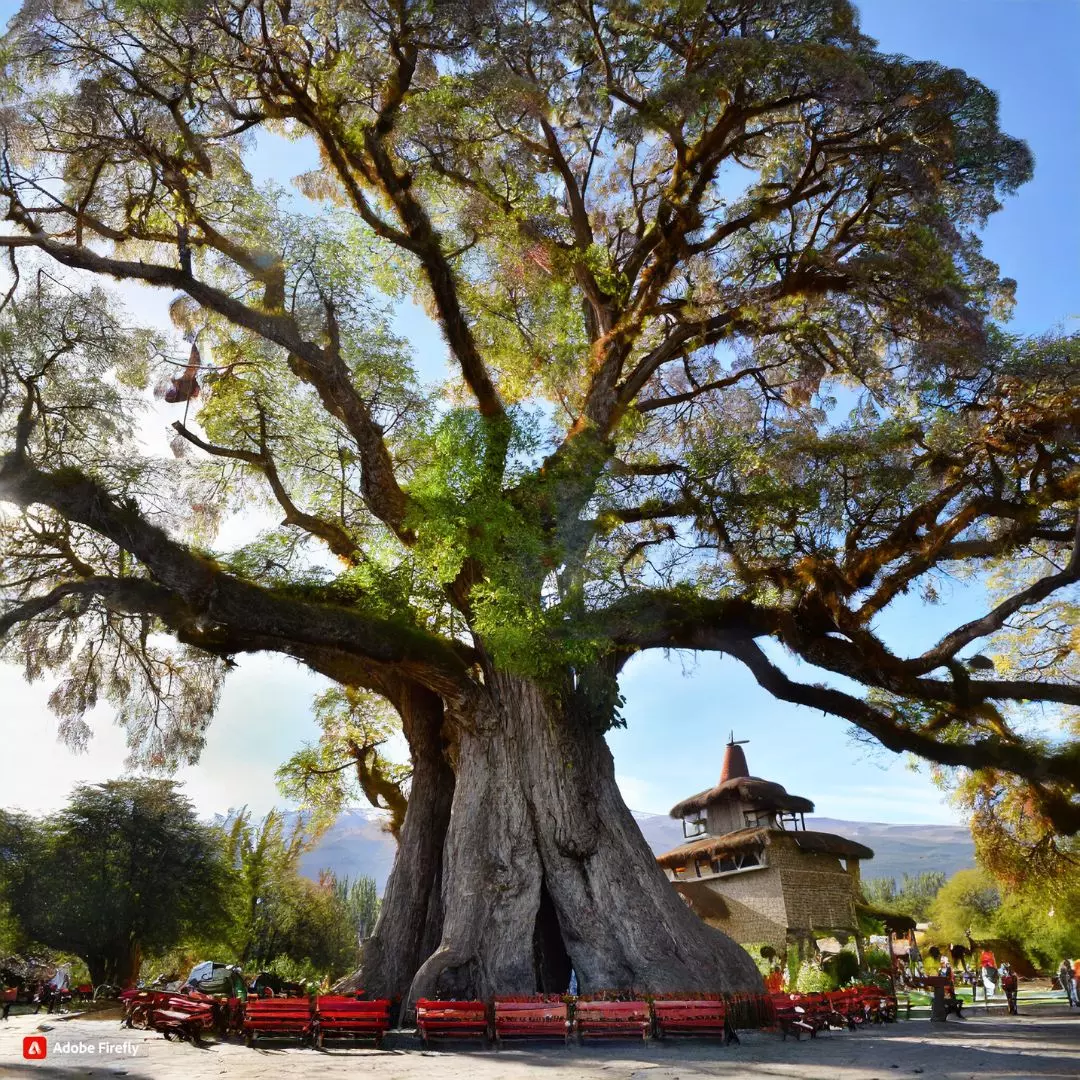In the heart of a southern Chilean forest stands a colossal arboreal marvel, known as the “Great Grandfather,” poised to rewrite the record books as the oldest living tree on Earth. With a towering trunk measuring four meters in diameter and standing at an impressive 28 meters, this ancient giant not only commands attention but also holds within its rings a treasure trove of scientific insights into the planet’s historical resilience against climatic changes.
Believed to have thrived for over 5,000 years, the Great Grandfather is on the verge of surpassing the current record holder, Methuselah, a venerable Great Basin bristlecone pine residing in California, United States, aged at 4,850 years. The monumental tree, a Fitzroya cupressoides, is a testament to nature’s endurance and adaptation, captivating researchers such as Antonio Lara from Austral University and Chile’s Center for Climate Science and Resilience.
Situated on the precipice of a ravine in the southern Los Rios region, this ancient giant is drawing global attention. Its trunk, akin to a time capsule, holds the key to unraveling Earth’s climatic narrative over millennia. Fitzroya cupressoides, commonly known as the Patagonian cypress, is endemic to the southern reaches of the continent and stands as the largest tree species in South America.
Tourists, eager to capture a moment with the soon-to-be-recognized world’s oldest tree, have flocked to the Chilean forest, prompting the national forestry body to increase park rangers and regulate access to protect the Great Grandfather’s sacred space. In contrast, Methuselah’s exact location remains shrouded in secrecy.
Discovered by park warden Anibal Henriquez in 1972 during a routine patrol, the Great Grandfather’s existence was kept confidential to shield it from exploitation. Anibal Henriquez’s dedication to preserving this botanical marvel continued until his untimely passing in 1988 while patrolling the same forest.
In 2020, scientists Jonathan Barichivich and Antonio Lara utilized an extraordinary manual drill to extract a sample from the Great Grandfather, estimating it to be 2,400 years old. Employing a predictive model, they project the tree’s age to be around 5,000 years, a revelation poised to reshape our understanding of ancient trees and their invaluable contributions to Earth’s ecological tapestry.
The scientific community anticipates the publication of the results, recognizing the significance of the Great Grandfather not only as a contender for the world’s oldest tree but as a living chronicle of climatic shifts, natural disasters, and the adaptability of life on our planet.
As the Great Grandfather inches closer to claiming the title of the world’s oldest living tree, the scientific community eagerly awaits the unveiling of its chronicles. Beyond the accolade, this ancient giant stands as a symbol of nature’s resilience and adaptation, urging us to safeguard these living witnesses of Earth’s history. The impending recognition of the Great Grandfather invites a collective reflection on the importance of preserving our planet’s ancient trees, ensuring that the secrets embedded within their rings continue to enlighten and guide us in the quest for a sustainable future.
Also Read: Pharmacy Council Of India Empowered For Aadhaar Authentication In Attendance Tracking











